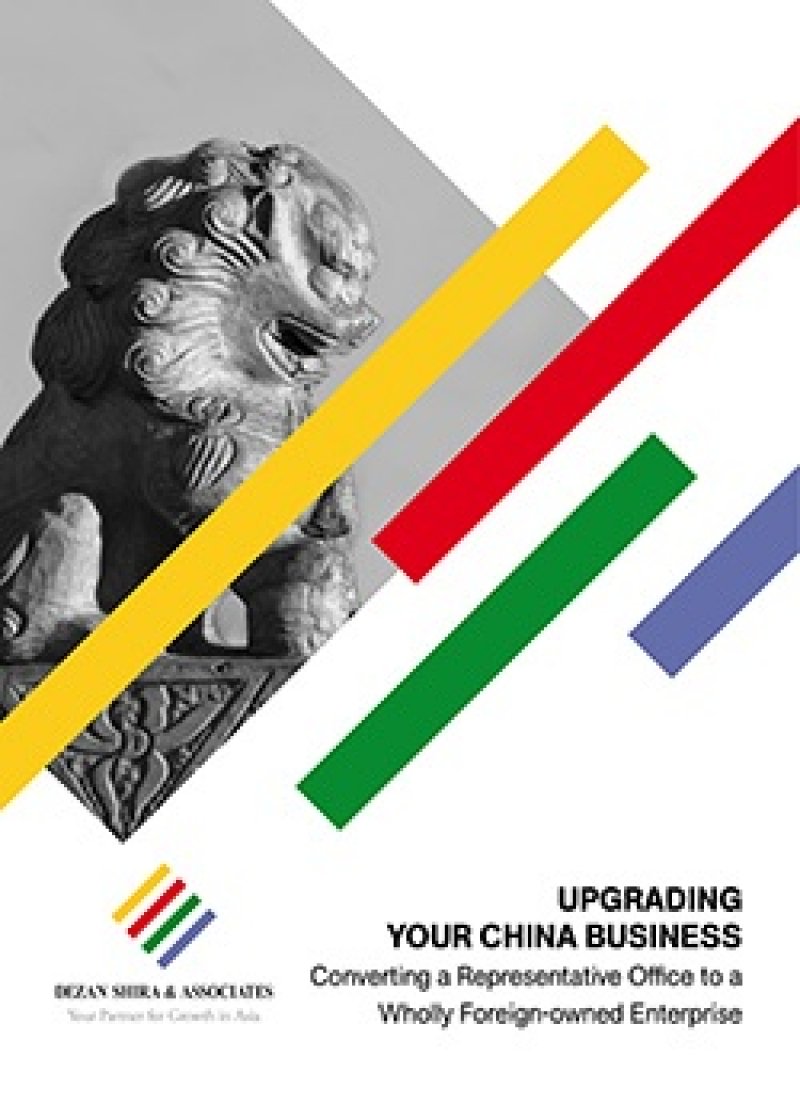
Upgrading Your China Business
Published: July 2015Representative Offices in China are not permitted to trade and cannot have their own import-export licenses. In this report we discuss why foreign companies in China increasingly choose to move away from Representative Offices (ROs) and open up Wholly Foreign-owned Enterprises (WFOEs) and Foreign Invested Commercial Enterprises (FICE) that permit them to import and export directly, sell to China, and claim back VAT and other expenses. If you considering upgrading to full buying and selling status in China, or looking at changing your RO to a WFOE or FICE, this report is for you.
No. of Pages: 12 pages
In this report:
- The pros and cons of Representative Offices and Wholly Foreign-owned Enterprises
- When does a conversion make financial sense?
- Stephen O’Regan answers common questions about conversions
- The roadmap to conversion
With a quick set-up procedure and low initial costs, many foreign investors use the Representative Office (RO) to make their first entry into China. However, as a company’s operations in China develop and expand, investors often run into the constraints that the RO structure imposes.
As we shall discuss in more detail throughout this report, a Representative Office is quick to attract a high tax burden when its activities in China increase.
In addition, China’s corporate laws demand strict adherence to an entity’s business scope. By its very nature, the business scope of the Representative Office is very narrow. Expansion plans may soon run into legal obstacles. This is because the RO is not intended to be an investment vehicle, but rather to provide some ancillary functions in China for foreign companies based abroad. In this way, the Representative Office acts merely as a cost center.
At this point many investors start looking at the option of setting up a Wholly Foreign-owned Enterprise (WFOE). The key difference between these entities is that a WFOE is an independent legal entity under Chinese law, whereas an RO is seen as an extension of a foreign company incorporated abroad.
Setting up a WFOE offers investors all the options of a a full-fledged subsidiary. For a full transition, the investor needs to shut down the RO. This is because certain costs associated with operating an RO cannot be eliminated without closing it down, such as office rent and taxes.
Investors should note that one cannot simply stop paying for the RO’s expenses and walk away. This would result in the investor being blacklisted and barred from doing business in China. The new WFOE would then almost certainly be shut down as well.
In this report, we outline what the procedure looks like, and what the optimal timing would be.

